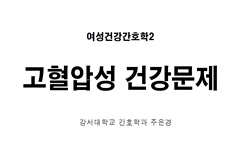본 연구는 임신과 남편의 사회적 지지가 여성의 자아존중감과 우울정도에 미치는 영향을 실증적으로 규명하기 위하여 아산시보건소를 이용하는 임산부 120명, 정상대조군으로 일반 주부 120...
http://chineseinput.net/에서 pinyin(병음)방식으로 중국어를 변환할 수 있습니다.
변환된 중국어를 복사하여 사용하시면 됩니다.
- 中文 을 입력하시려면 zhongwen을 입력하시고 space를누르시면됩니다.
- 北京 을 입력하시려면 beijing을 입력하시고 space를 누르시면 됩니다.
임신과 남편의 사회적 지지가 여성의 우울과 자아존중감에 미치는 영향 = The Effects of Pregnancy and Husband's Social Support on Women's Depression and Self-Esteem
한글로보기https://www.riss.kr/link?id=T11492894
- 저자
-
발행사항
천안 : 호서대학교 여성문화복지대학원, 2005
-
학위논문사항
학위논문(석사) -- 호서대학교 여성문화복지대학원 , 상담심리학과 , 2005. 8
-
발행연도
2005
-
작성언어
한국어
- 주제어
-
발행국(도시)
충청남도
-
형태사항
vi, 58 p. ; 26cm
-
일반주기명
지도교수 :차경호
- 소장기관
-
0
상세조회 -
0
다운로드
부가정보
국문 초록 (Abstract)
본 연구는 임신과 남편의 사회적 지지가 여성의 자아존중감과 우울정도에 미치는 영향을 실증적으로 규명하기 위하여 아산시보건소를 이용하는 임산부 120명, 정상대조군으로 일반 주부 120명을 대상으로 하였다.
자료 수집을 위한 도구로는 개인이 얼마나 정서적 지지를 받고 있다고 지각하는가를 알기 위하여 김정희(1991)가 제작한 검사로 하였다. 자아존중감 척도는 Rosenberg(1965)의 자아존중감 척도(Self-Esteem Scale: SES)를 백혜원(1993)이 번안하여 표준화시킨 척도로 하였다. 우울증 척도는 Zung(1970)의 우울증 자가 측정표를 가지고 우울 정도를 측정해 보았다.
자료 분석에서는 임신유무에 따른 사회적 지지와 자아존중감, 우울정도에 대해 독립표본 t-검증을 하였고, 임신 여성 집단과 비임신 여성 집단 각각의 사회적 지지, 자아존중감, 우울정도의 상관분석을 하였고, 그 결과 각 집단에 따라 사회적 지지와 자아존중감과의 상관계수가 차이가 있음을 알아보기 위하여 Fisher의 z 값으로 변환해 상관차이를 검증하였다. 그리고 각각의 인구 통계학적 변인과 사회적 지지, 자아존중감, 우울정도를 독립변인으로하는 이원변량분석(Two-Way ANOVA)를 실시하고 그에 따른 상호작용효과를 분석하였다.
이상의 연구방법과 절차를 통하여 임신과 사회적 지지가 여성의 자아존중감과 우울정도에 미치는 영향을 결과 분석하여 다음과 같은 결과를 얻었다.
첫째, 임신과 사회적지지, 자아존중감, 우울정도 사이에는 유의미한 차이가 없는 것으로 나타났다. 즉, 임신은 여성의 사회적 지지와 자아존중감, 우울정도에 영향을 미치지 않는 것으로 나타났다.
둘째, 자아존중감과 사회적지지의 경우에 정적상관관계가 나타나는 것으로 보아, 사회적 지지는 자아존중감에 영향을 미친다.
셋째, 임신유무와 직업유무, 소득정도, 결혼기간의 사이에서 유의미한 차이를 보였다. 그 결과, 임신 중에는 전업주부로 생활하는 여성이 자아존중감이 높고, 우울정도가 낮은 것으로 나타났다. 그리고, 임신 중일 경우에는 소득이 적다고 하여 더 우울하거나 자아존중감이 낮아지지는 않는 것으로 나타났다. 마지막으로 결혼 1년차 여성들이 임신한 경우 가장 높은 자아존중감을 가지며 낮은 우울정도를 지닌다. 그러나 비임신의 경우 결혼 1년차 여성들이 자아존중감에는 차이가 없으나, 우울정도 경우에 가장 높게 나타났다.
다국어 초록 (Multilingual Abstract)
This study was conducted in 120 pregnant women who used the Asan Health Center, with 120 common housewives as the control group, in order to empirically determine effects of pregnancy and husband's social support on women's self-esteem and depression....
This study was conducted in 120 pregnant women who used the Asan Health Center, with 120 common housewives as the control group, in order to empirically determine effects of pregnancy and husband's social support on women's self-esteem and depression.
The tool used for data collection was the test manufactured by Kim (1991) to determine how much individuals perceive emotional support given to them. As for a self-esteem scale, the translation and standardization of Rosenberg's (1965) Self-Esteem Scale (SES) by Baek (1993) was used. And as for a depression scale, Zung's (1970) Depression Self-Assessment was used to measure the level of depression.
For data analysis, independent sample t-test was carried out to measure social support, self-esteem, and depression in relation to pregnancy; correlation analysis was implemented to determine social support, self-esteem, and depression in each of pregnant and non-pregnant women groups; and correlation differences were tested after the transition into Fisher's value of z in order to determine if correlation coefficients vary in terms of social support and self-esteem in each group. Besides, two-way ANOVA was carried out with each of demographical variables, social support, self-esteem, and depression as independent variables to analyze resultant interactive effects.
After the procedure mentioned above, an analysis was made for the effects of pregnancy and social support on women's self-esteem and depression, consequently obtaining the following results.
First, there is no significant relationship between pregnancy and husband's social support and self-esteem and depression. That is, pregnancy has no effect on women's social support, self-esteem, and depression.
Second, there is positive correlation between self-esteem and social support; thus, social support affects self-esteem.
Third, there were significant relations among pregnancy, employment, income level, and length of marriage; so interactions were considered among them. As a result, women as a housewife showed high self-esteem and low depression during pregnancy while lower income never resulted in higher depression or lower self-esteem during pregnancy. Women who have been married for one year showed the highest self-esteem and low depression. In case of non-pregnancy, however, there was no difference in self-esteem of those women who have been married for a year but they showed the highest depression.
목차 (Table of Contents)
- Ⅰ. 서론 = 1
- Ⅱ. 이론적 배경 = 4
- 1. 사회적지지 = 4
- 2. 우울증 = 7
- 3. 자아존중감 = 12
- Ⅰ. 서론 = 1
- Ⅱ. 이론적 배경 = 4
- 1. 사회적지지 = 4
- 2. 우울증 = 7
- 3. 자아존중감 = 12
- Ⅲ. 연구 목적 = 21
- Ⅳ. 연구방법 = 23
- 1. 연구참여자 = 24
- 2. 조사도구 = 24
- 3. 조사절차 = 26
- 4. 자료분석 = 26
- Ⅴ. 연구 결과 = 27
- 1. 임신에 따른 사회적 지지, 자아존중감, 우울정도 = 27
- 2. 사회적지지, 자아존중감, 우울정도와의 상관관계 = 29
- 3. 임신유무와 인구통계학적 변인과의 상호작용 = 32
- Ⅵ. 논의 및 제언 = 42
- 1. 논의 = 42
- 2. 제언 = 46
- 참고문헌 = 47
- ABSTRACT = 51
- 부록 = 54












